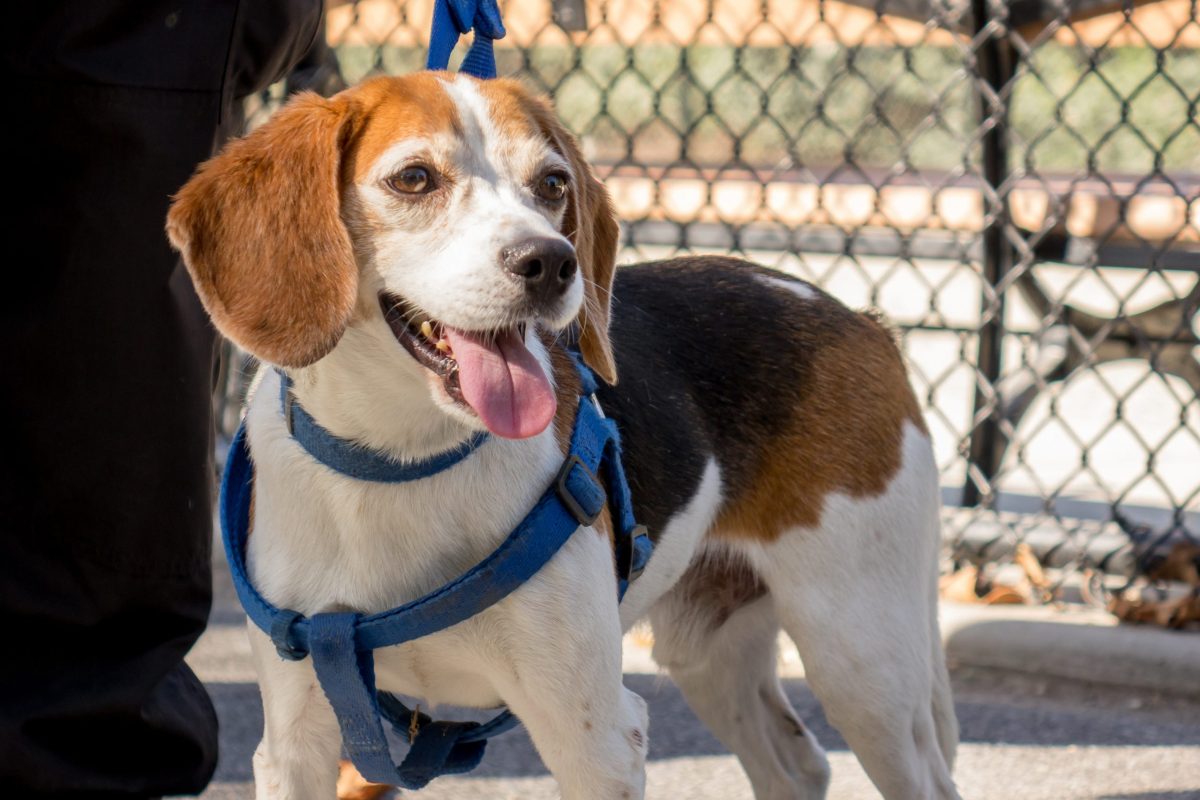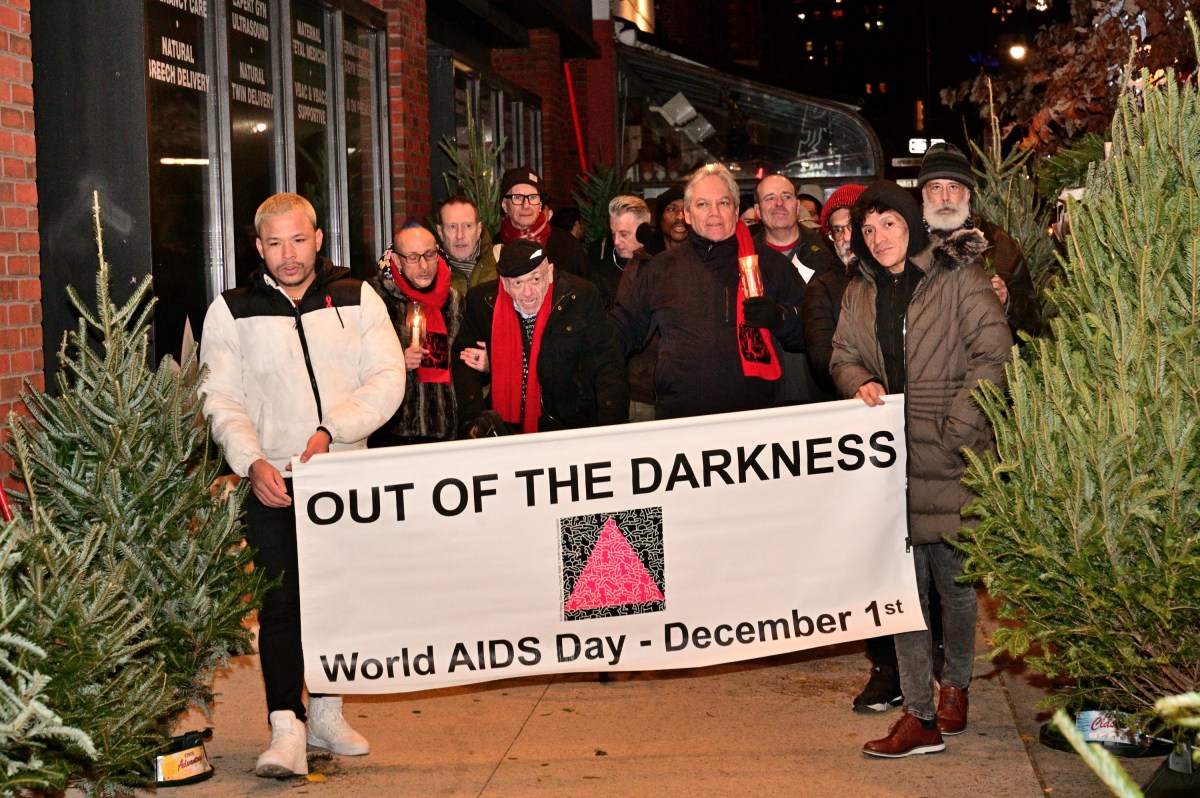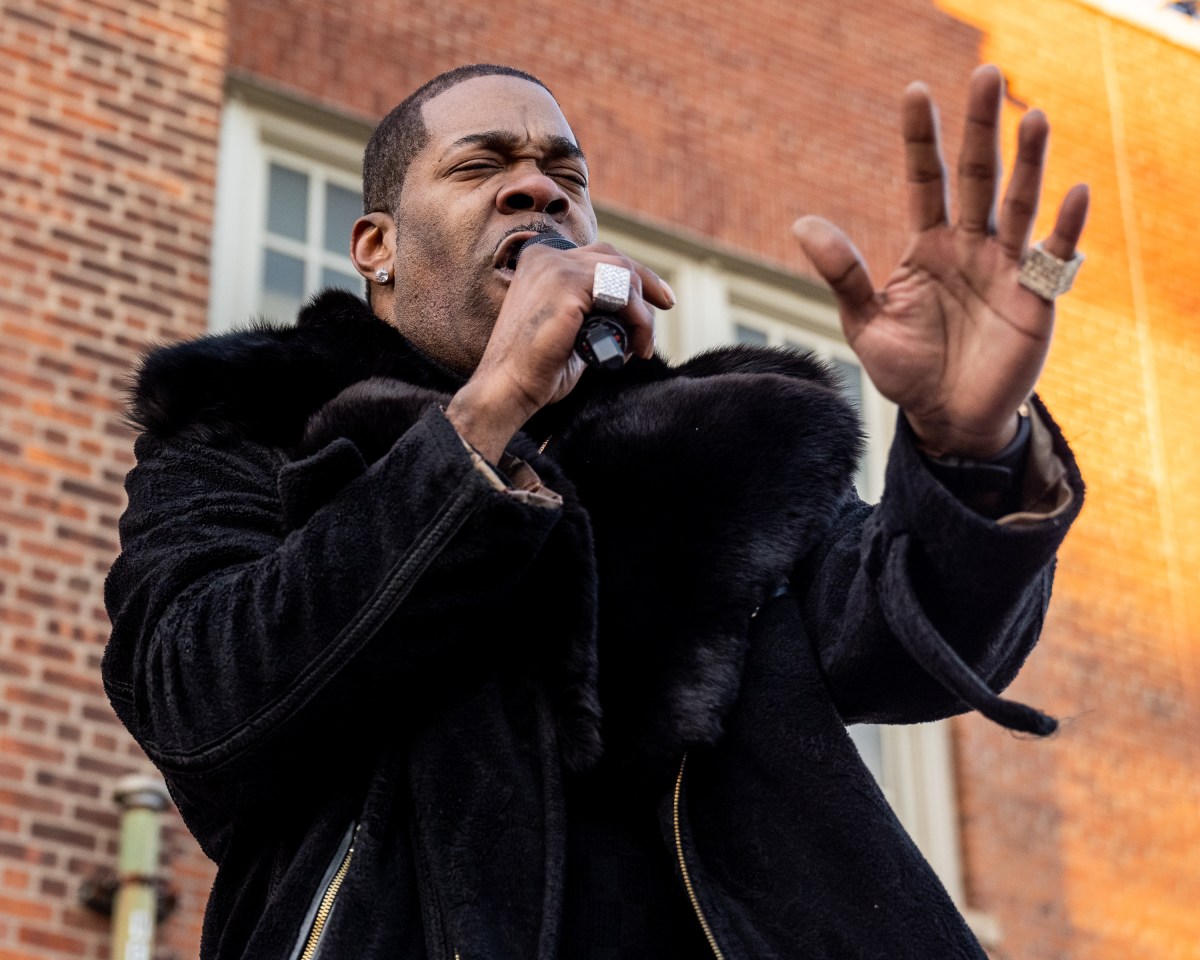BY GABRIEL SANDOVAL, THE CITY. This article was originally published on by THE CITY
Nemo and Mickey, a pair of miniature beagles on the code enforcement team at the city Department of Housing Preservation and Development, have sniffed out bedbugs since they were puppies, protecting the city from blood-sucking insects one apartment at a time.
But the dogs are aging and inching toward retirement: Nemo is 10 and Mickey is 11.
Now, the agency is searching for the next generation as the canines wrap up their distinguished careers as public servants.
“The vet estimates that Mickey and Nemo have one to two working years left,” said Matthew Creegan, an HPD spokesperson.
The agency has posted a notice seeking a handler to supply, groom and house two new trained dogs, in addition to caring for Mickey and Nemo, in a facility with staff present around the clock.
“As of now, HPD plans to retain ownership of both dogs, past their working years,” Creegan said.
The agency has also declared its intent to keep the dogs’ current handler, Biscuits & Bath, a doggy daycare center with multiple locations throughout Manhattan.
For the past six years, the beagles have lived at Biscuits & Bath’s branch on the Upper East Side, where they receive veterinary services and training twice annually.
Since 2011, the detection dogs have accompanied code inspectors on visits to apartments where a resident has called 311 to complain about a possible bedbug infestation.
When a team enters an apartment, the dog is unleashed to sniff for bugs, allowing its nose to guide the way. Once bugs are located, they sit to notify the inspector.
Creegan said landlords are obligated to correct violations by hiring an exterminator to remedy the problem within a set period of time depending on the severity of the case. HPD returns to verify the bugs have been eradicated. If they’re still lurking, he said, an inspector will issue another violation.
Bedbug infestations surged in New York City in the 2000s. But related calls to 311 have been steadily dropping in the past decade, sliding from 12,200 in fiscal year 2012 to nearly one-third of that, 4,415, in the year that ended on June 30.
“Combined, Mickey and Nemo attempt more than 3,500 inspections per year,” Creegan noted. They surpassed 25,000 career inspections in 2017. Commemorating the milestone, the city awarded them bones and sweaters with their names on them, amNewYork reported.
‘Find the Bugs’
The dogs have enjoyed quite a run.
They officially joined HPD in November 2011 after successfully completing a six-month training course in bedbug detection at the Iron Heart Training Center in Shawnee, Kan., where they were born.
On their first day, the duo inspected a total of nine homes for bedbugs, resulting in three violation notices for landlords, a Wall Street Journal article at the time noted.
Each dog works separately from the other, assisting a rotating crew of three inspectors.
David Trevino, an HPD inspector, has worked with Nemo and Mickey since they started. He joined HPD’s canine inspection unit at its inception.
An HPD employee since 2006, he recalled first hearing the agency float the idea of creating the canine unit about a decade ago. The dog lover decided to volunteer.
“I love working with them,” said Trevino, 59. “They are smart dogs. They’ve been doing it so long, you know. We do training every year, but it’s already in their blood.”
Trevino said the number of inspections varies daily, as does the duration of each visit, which ranges between 15 and 30 minutes.
“Bedbugs hide and they come out at night, and once you turn on the lights, they hide,” he said, adding he has to verify the presence of live bedbugs with a flashlight before he can issue a violation to a landlord.
Dead bedbugs or bite marks do not suffice, he said.
The dogs aren’t allowed to mingle with residents, although kids are an exception.
“You know how kids are. They like to play with dogs,” Trevino said. “I don’t stop them, especially Nemo. He loves kids.”
When it’s time to search, he gives Nemo and Mickey a simple command: “Find the bugs!”
“Right away, they go at it,” he said. “They love it.”
He offers treats after they discover bugs, but not always.
“Nemo, I give him sometimes,” Trevino said. “But when you praise him — like, ‘Good boy, good boy!’ — they love it. They just go throw themselves on the floor, shaking his tail.”
Trevino acknowledged that Nemo and Mickey’s detection skills aren’t 100% perfect, as a 2010 New York Times expose pointed out about sniffing dogs’ powers, but that’s why he’s there to verify.
“We can’t write a violation of bedbugs if we don’t find it,” he told THE CITY.
Cuteness Factor
Jennifer Erdogan, director of Bell Environmental Services, a pest control company serving clients in and around New York City, knows much about bedbug-detection dogs. Roscoe, the bedbug-sniffing beagle famous for his “Where’s Roscoe?” commercials, worked for Bell before retiring about three years ago, she said.
“Roscoe is an old man right now,” she said.
Now 11, Roscoe lives in New Jersey and apparently roots for the Mets.
A dog’s incredible sense of smell, mixed with its desire to please its handler, makes a canine the ideal partner for detecting the presence of bedbugs, Erdogan said.
“You can’t really prepare for bedbugs, but you can detect them early, and the dogs are really, really helpful at doing that,” she said.
“We smell the stew cooking on a stove and it just smells really good, and we say, ‘Oh, that’s beef stew,’” she added. “But they can smell the individual onions, carrots, garlic as separate entities. That’s how unique and strong their smelling is.”
It’s also helpful that beagles are “very cute,” small-to-medium sized and unintimidating dogs. Sarah-Elizabeth Byosiere, director of the Thinking Dog Center at Hunter College, agreed on cuteness being helpful and important in their line of work.
“It’s not abnormal to have a dog in your bedroom, so perhaps it’s not abnormal to bring in a working dog to detect for bedbugs,” she said.
A Pandemic Refuge
In late March, when Biscuits & Bath was temporarily closing due to the pandemic, Trevino was asked if he could house the dogs in the interim, he said.
“I didn’t hesitate,” he recalled. “I just said, ‘No problem. I’ll take ‘em.’”
 Jonathan Patkowski/Housing Preservation and Development
Jonathan Patkowski/Housing Preservation and Development
The dogs stayed with Trevino, his wife and their dog — a 1-year-old Belgian Malamar named King — at their Washington Heights home for several weeks in the spring during the height of the pandemic. Nemo, Mickey and King soon became friends.
When Trevino brought Nemo and Mickey home for the first time, they cried because they weren’t accustomed to his home, he recalled. To comfort them, he ditched his bed for the sofa.
“The first couple of days, I had to sleep next to them,” he said.
Each day at 5 a.m., he said, he’d walk the dogs to Highbridge Park along the Harlem River, where the dogs played for 30 to 45 minutes.
In June, Trevino returned the dogs to Biscuit & Bath and in-person inspections resumed. Now, they work three days a week, Trevino said.
Precious Pups
Trevino didn’t know about the dogs’ planned retirement until he was informed by THE CITY.
“I didn’t know that,” he said. “I never heard about that.”
He said although he is not a vet, he suspects the dogs could work three more years. A moment later, he reconsidered, noting how some days they work better than others.
“Everybody got their limits, but you don’t want to push the dogs too much either,” he said. “When I see that they can’t work no more, I will email my boss.”
Trevino’s own retirement is approaching. He suspects he has three years left.
Trevino said the city should reward Mickey and Nemo for their years of public service, with a retirement on a farm “where they can run around for the rest of their life.”
“They’re the best dogs I’ve ever worked with — only dogs I have ever worked with,” he said. “Listen, I love those dogs so much.”
When Trevino retires to Puerto Rico or the Dominican Republic, he’ll have land for the dogs to run free, he said, “but I don’t know if they’re gonna give them to me.”
He said he welcomes the opportunity to work with replacement dogs in the future because all dogs are precious.
The old adage — “you can’t teach an old dog new tricks” — is misguided, he said.
“That’s just a myth, OK?” he said. “That’s a lie. You can. You can always train a dog.”
THE CITY is an independent, nonprofit news outlet dedicated to hard-hitting reporting that serves the people of New York.








































